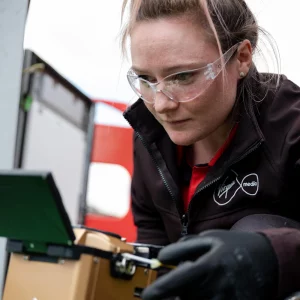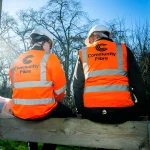Sponsored Links
European Digital Rights Group Slams UK ISP Use of IWF Internet Censorship
Posted: 28th Jan, 2011 By: MarkJ
 European Digital Rights (EDRi), which includes 29 privacy and civil rights groups from 18 different countries in Europe, has published a scathing new report into the increasing tendency of governments to ask, demand or coerce broadband ISPs into carrying out surveillance, policing, judging and sanctioning measures on their customers.
European Digital Rights (EDRi), which includes 29 privacy and civil rights groups from 18 different countries in Europe, has published a scathing new report into the increasing tendency of governments to ask, demand or coerce broadband ISPs into carrying out surveillance, policing, judging and sanctioning measures on their customers.The report - 'The slide from “self-regulation” to corporate censorship' (PDF) - describes the blocking of websites to tackle banned content, such as child sexual abuse images, as "an increasingly pointless endeavour" and one that distracts governments from devoting significant resources to tackling the real culprits; those who post such material in the first place.
EDRi singles out the Internet Watch Foundation ( IWF ) and its internet filtering (website blocking) system as one example of a service, that most UK consumers ISPs have adopted, which could allegedly be counterproductive to solving the underlying problem.
Report Sameple Quote:
Illegal sites are rapidly and increasingly moving their location and using hacked servers (and the IWF produces statistics to confirm this) and both phenomena significantly reduce the possible usefulness of blocking.
The British government is happy with a system where it can show activity in this important policy area without necessarily having to devote significant resources to the problem. Similarly, the ISPs that have signed up to the system get good publicity without having to invest significantly in terms of either time or money.
One could almost be forgiven for forgetting that the websites depict real and horrific crimes against children, for forgetting that this policy is removing pressure for those children to be identified and rescued, removing pressure to have the criminals behind the sites brought to justice, for forgetting that the “blocked” sites remain online and accessible to anyone who wants to see them in Britain and without restriction for any Internet user who wants to see them around the world.
It is ironic to note, however, that, for all of its shortcomings and the lack of analysis of its impact, the blocking system facilitated and promoted by the IWF is probably the least bad of all similar initiatives. The system most widely used in the UK is far more targeted than in other countries, resulting in fewer legal resources being blocked. In addition, the list is updated more frequently in the UK than in other countries, increasing the likelihood that some currently active illegal sites are on the list.
Illegal sites are rapidly and increasingly moving their location and using hacked servers (and the IWF produces statistics to confirm this) and both phenomena significantly reduce the possible usefulness of blocking.
The British government is happy with a system where it can show activity in this important policy area without necessarily having to devote significant resources to the problem. Similarly, the ISPs that have signed up to the system get good publicity without having to invest significantly in terms of either time or money.
One could almost be forgiven for forgetting that the websites depict real and horrific crimes against children, for forgetting that this policy is removing pressure for those children to be identified and rescued, removing pressure to have the criminals behind the sites brought to justice, for forgetting that the “blocked” sites remain online and accessible to anyone who wants to see them in Britain and without restriction for any Internet user who wants to see them around the world.
It is ironic to note, however, that, for all of its shortcomings and the lack of analysis of its impact, the blocking system facilitated and promoted by the IWF is probably the least bad of all similar initiatives. The system most widely used in the UK is far more targeted than in other countries, resulting in fewer legal resources being blocked. In addition, the list is updated more frequently in the UK than in other countries, increasing the likelihood that some currently active illegal sites are on the list.
At the root of all this is the fact that none of these website blocking systems actually work and often only provide a more placebo like impression of effectiveness. Such systems can easily be circumvented by using proxy servers, VPN, DNS changes, direct IP URLs or secure connections.
Nobody wants child abuse filth on the internet and the IWF's is by no means at fault for trying to at least do something about it, yet in reality ISP's only have skin-deep control of third party online content. The only truly effective way of tackling such media is to physically remove it at source or to switch the public internet off entirely.
In addition many such systems often unwittingly restrict access to completely legitimate sites (e.g. Wikipedia, Rapidshare etc.), which is a by-product of how the filters actually work and can sometimes cause problems with ISP servers. This isn't usually intentional and, as above, is easily circumvented until the ISP has resolved it.
EDRi's report also attacks Virgin Media for its "use of deep packet inspection [technology] to check for potential intellectual property [copyright] infringements" on customers broadband connections. This refers to Virgin's trial of Detica's CView technology, which never actually launched and plans for it were put on ice last year (here).
Many commentators suggest, including some MEP's, that a far better solution would be to put more effort into establishing tougher global rules for handling the effective removal of related images and content from web servers.
Search ISP News
Search ISP Listings
Search ISP Reviews
Latest UK ISP News








Cheap BIG ISPs for 100Mbps+
150,000+ Customers | View More ISPs
Cheapest ISPs for 100Mbps+
Modest Availability | View More ISPs
Latest UK ISP News
Helpful ISP Guides and Tips
Sponsored Links
The Top 15 Category Tags
- FTTP (6802)
- BT (3882)
- Politics (3076)
- Business (2767)
- Openreach (2663)
- Building Digital UK (2513)
- Mobile Broadband (2476)
- FTTC (2142)
- Statistics (2130)
- 4G (2093)
- Virgin Media (2026)
- Ofcom Regulation (1780)
- 5G (1733)
- Fibre Optic (1604)
- Wireless Internet (1595)
Sponsored
Copyright © 1999 to Present - ISPreview.co.uk - All Rights Reserved - Terms , Privacy and Cookie Policy , Links , Website Rules






























